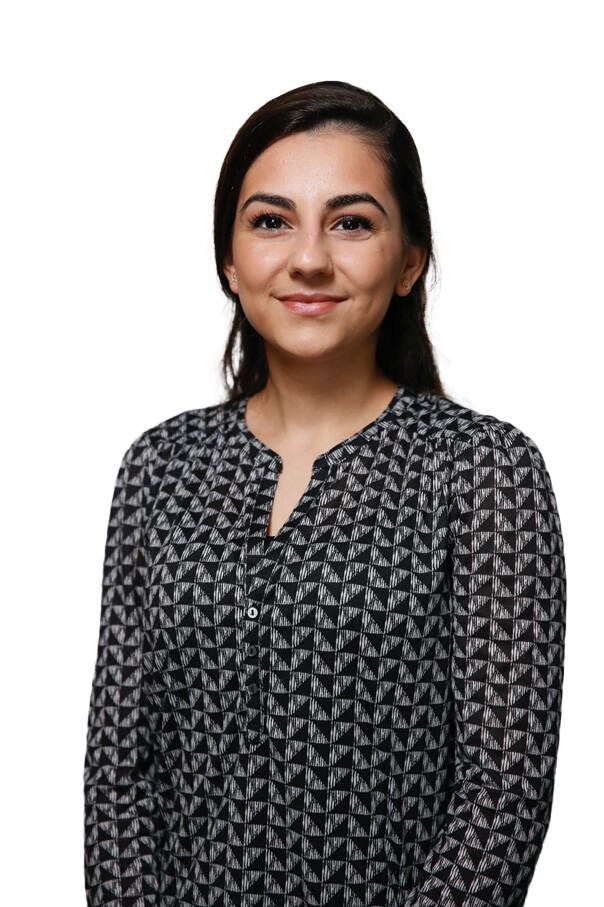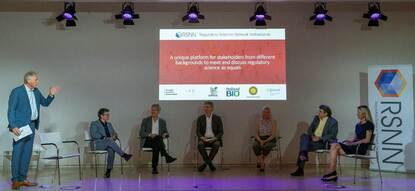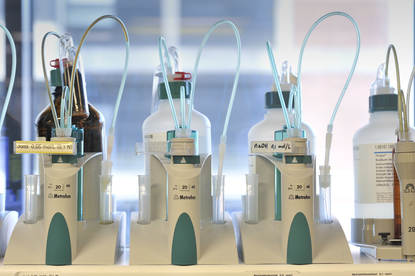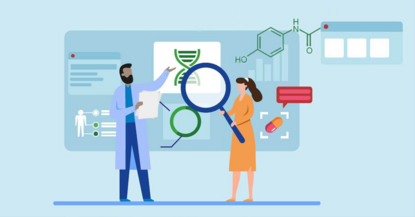We are delighted to announce that Rawa Ismail (in May 2022) and Christel Hoeve (in September 2022) have successfully defended their PhD thesis. We congratulate both of them! For this Regulatory Science Magazine we asked them both several questions about the research they conducted.
Rawa Ismail obtained her Master’s degree in Pharmacy at the University of Utrecht. Following graduation in 2018, she started her PhD at the Dutch Institute for Clinical Auditing (DICA) in collaboration with the Medicines Evaluation Board (MEB). She combined her PhD with managing the quality registries for metastatic melanoma and lung cancer. She was also involved with the start of the DICA Medicines program.
Currently Rawa works as medical advisor oncology at Merck Sharp and Dohme (MSD) in the Netherlands.
Thesis highlight: Rawa Ismail
Rawa Ismail has successfully defended her PhD thesis at Utrecht University titled: “Real-world data in cancer treatment – bridging the gap between trials and clinical practice.”
Her supervisors were Prof. Ton de Boer (MEB/Utrecht University (UU)), Prof. Michel Wouters (DICA/Leiden University), dr. Doranne Hilarius (Rode Kruis hospital) and dr. Maaike van Dartel (MEB). You can find her thesis here.
What is the most important message from your research?
This thesis aimed to investigate how the real-world population of patients with cancer differs from the trial population and how real-world data can be used in daily clinical practice to improve cancer care. Quality registries are a source of real-world data on patients treated in clinical practice. These data can be used to improve care, for example, using quality indicators. Different methods are used to compare real-world and trial patients and their clinical outcomes. We used individual patient data for these comparisons, which are important for a valid comparison. In this thesis, we present a study which showed that 40% of the patients with advanced melanoma would be ineligible for trial participation because they are less fit and often have brain metastases. Furthermore, the adjuvant treatment of patients with melanoma is often discontinued early in clinical practice. In patients with advanced melanoma, we also found poorer long-term survival outcomes in the real-world. These differences can mainly be explained by poorer patient- and tumor characteristics. Real-world data can be used in clinical practice to provide realistic treatment outcomes, perform exploratory analyses which are not feasible in clinical trials, and describe cancer care in extraordinary settings such as the COVID-19 pandemic.
What is the impact of your research for the MEB?
The treatment landscape of patients with cancer is changing. Real-world data on the effectiveness and safety of treatments are increasingly important because randomised controlled trials are not always feasible in certain populations. Furthermore, data on patients not eligible for randomised controlled trials can give insights into the effectiveness of treatments in the real-world. These patient groups should always be considered in the assessment of new treatments. Furthermore, real-world data are more often used for marketing authorisation. Registries, including real-world data, will be increasingly used to support regulatory decisions and this thesis provides information to help understand the value of real-world data and how these data can be used in the marketing authorisation process. For example, advanced melanoma patients with brain metastases were excluded from the phase III clinical trials investigating BRAF-MEK inhibitors, but the EMA requested additional data on this specific subgroup of patients. In this thesis we describe the effectiveness of these treated patients in the real-world (registry data) and patients treated in post-approval clinical trials.


Christel Hoeve obtained her Master’s degree in Medical Pharmaceutical Sciences in Groningen and subsequently did PhD research at the Erasmus University Medical Centre in Rotterdam. Simultaneously, she worked as a pharmacovigilance assessor at the Medicines Evaluation Board in Utrecht. In addition to the PhD work and pharmacovigilance responsibilities she pursued a second MSc degree in Health Sciences with a specialisation in pharmacoepidemiology at the Erasmus University Medical Centre, from which she graduated in 2018. While finishing her PhD she worked for two years as a data-specialist for Stichting Epos Onderwijs Rotterdam. Since early 2022 she works as an epidemiologist at the RIVM studying the effectiveness of COVID-19 vaccines.
Thesis highlight: Christel Hoeve
Christel Hoeve has successfully defended her PhD thesis at Erasmus University Rotterdam titled: “Medication errors - through the eyes of the regulator and governmental bodies.”
Her supervisors where Prof. Miriam Sturkenboom (UU) and dr. Sabine Straus (MEB/Erasmus University Rotterdam).
What is the most important message from your research?
Medication errors can occur at any stage of the treatment process and may lead to or may have the potential to lead to harm to the patient. Minimising the risk of medication errors is a shared responsibility of all stakeholders. Stakeholders identified in this context are patients, healthcare professionals, regulators and the pharmaceutical industry. This thesis focused on the role of regulators and authorities in the risk minimisation of medication errors. The research in this thesis shows that regulators can use EudraVigilance for monitoring of medication errors and to identify patterns or signals of medication errors that require intervention. We also showed that medication errors are often included as safety concerns in risk management plans, although additional risk minimisation measures are not often required. We also observed that specific product groups (products with multiple formulations, enteral liquids, injections and products for the nervous system) had a higher risk of requiring a Direct healthcare professional communications (DHPC) for medication errors during the product lifetime.
What is the impact of your research for the MEB?
Over the last two decades there is increased attention for medication errors in the regulatory world. Several actions by the EMA also point towards this: Stimulation of the reporting of medication errors by extending the legal definition of adverse reactions to include amongst others medication errors, introduction of good practice guides for medication errors, and the requirement to discuss medication errors in the Risk Management Plan (RMP). However, some of it still needs some fine tuning. Medication errors are often included in the RMP without any risk minimisation measures required, or without explanation of the clinical consequences of a medication error. It appears that in some cases a better-safe-than-sorry approach is utilised.
Regulators are recommended to be critical in including medication errors in the RMP and not to overregulate. On the other hand, risk factors were identified that may increases the risk of a product to require DHPC for medication errors. One of these risk factors for example is multiple formulations. Regulators and industry together should consider the necessity for multiple formulations of a product on the market and the consequences of mix-ups between these products before bringing it to the market.











